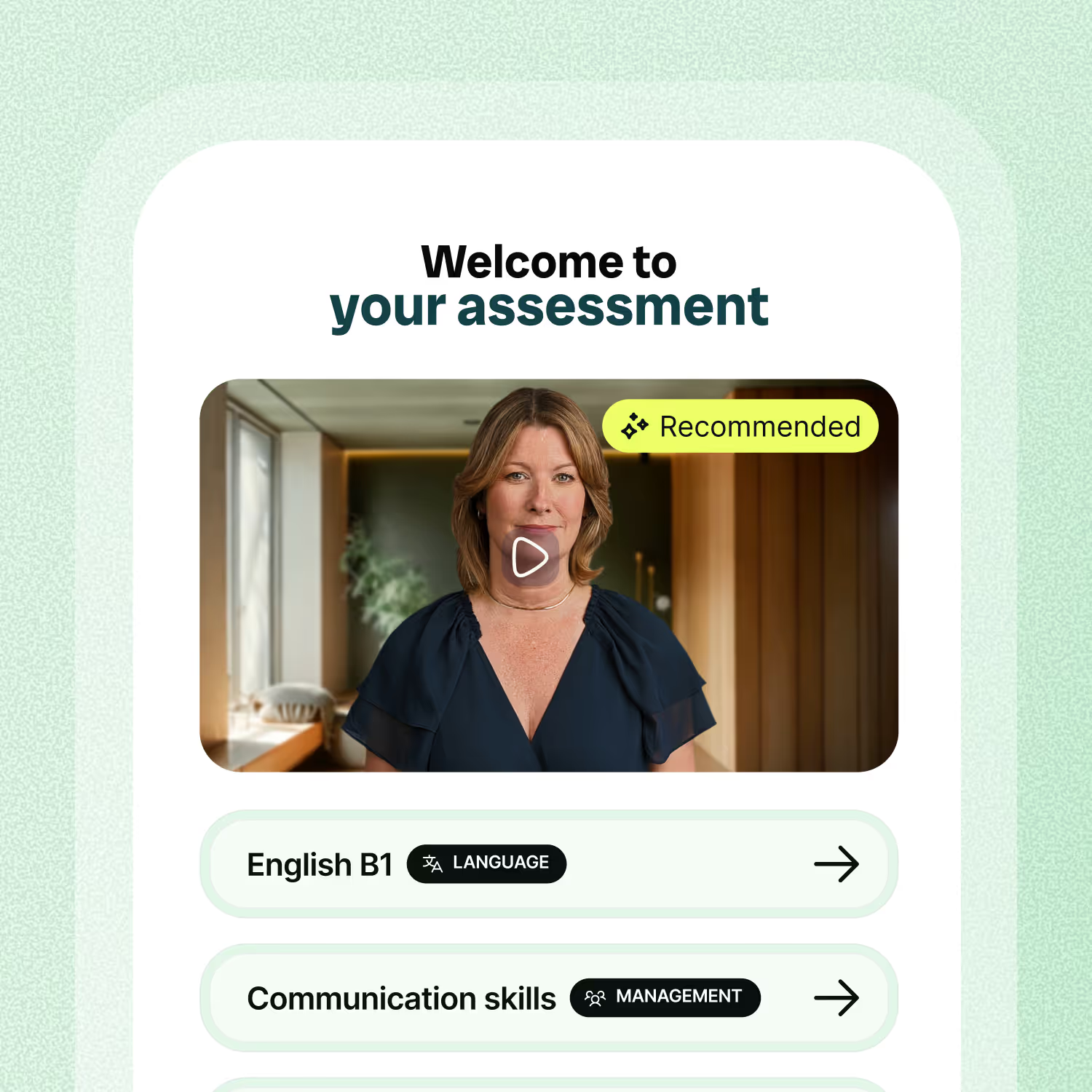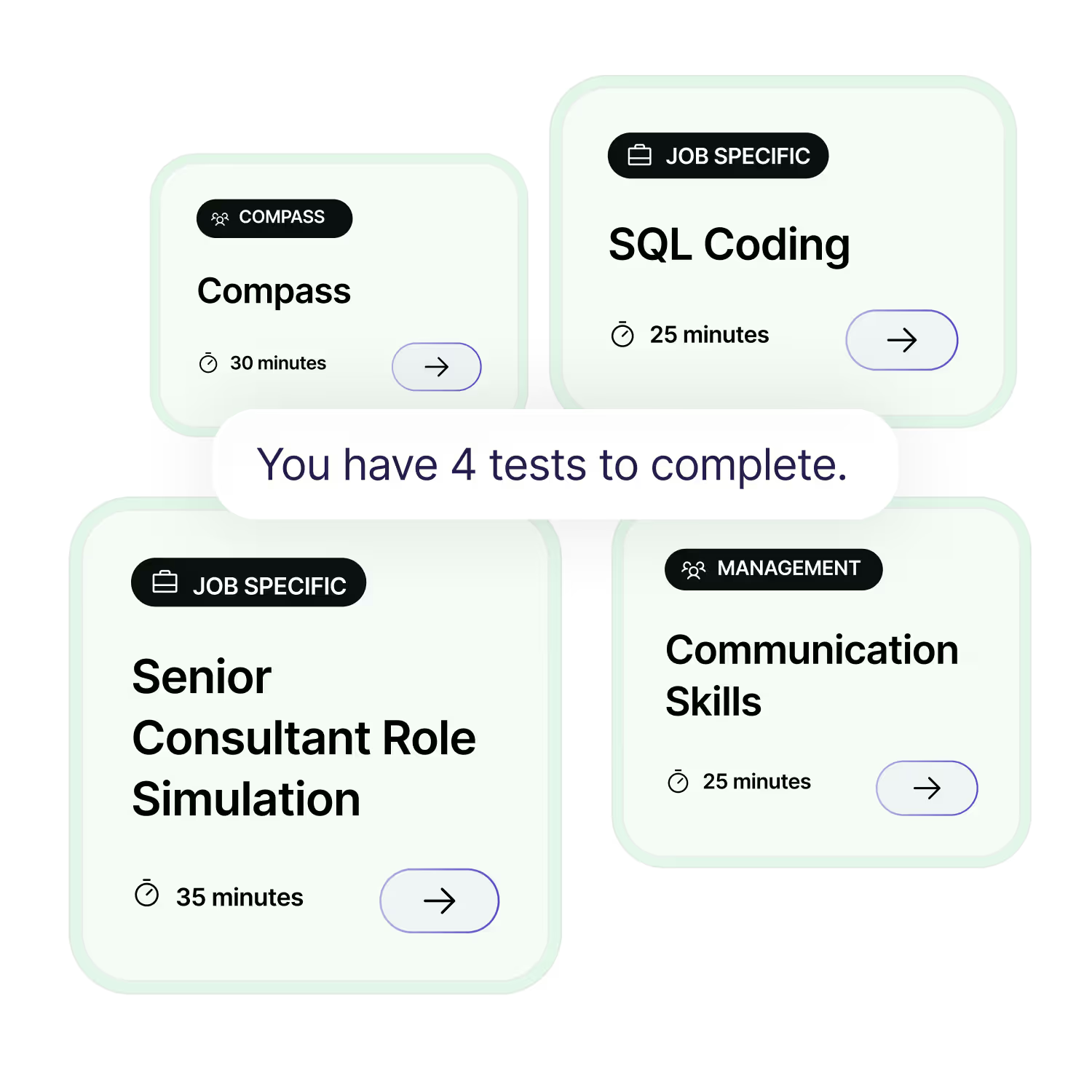Ken
Ken, structured assessments for high-stakes hiring
Ken delivers rigor and depth, evaluating over 300 skills through modular, long-form assessments that validate Shiro shortlists and enable confident, evidence-based hiring.

Trusted by Global Leaders
.png)








.png)








Core Features & Technology
Modular design
Configurable 15 – 60 min assessments
Skill coverage
300 + skills: cognitive, behavioral, technical, soft, and linguistic
Formats
MCQs, written tasks, simulations, SJTs, job-specific modules
Ken-exclusive modules
Long-form coding assessments, compass, cognitive aptitude, leadership or psychometric simulations
Explainable AI scoring
Bias-audited, audit-ready outputs
Consistency
Standardized global methodology
Brand customization
Fully white-labeled experience

Impact & metrics
Higher predictive validity across roles
Fewer mis-hires and stronger retention
Consistent global evaluation standards
Differentiators
Advanced Validation
Built for mid- / late-funnel validation
Unified Framework
Breadth + depth in one science framework
Localized Precision
Role- and region-specific tailoring
Compliant
Regulator-ready documentation
Workflow
Workflow example with Ken
Candidate completes Shiro and moves forward based on results
Ken triggers for selected candidates and runs an in-depth assessment
Detailed scores and insights appear in Maki Recruiter, with status updates pushed to the ATS
Recruiters review the strongest profiles in Maki Recruiter and run final interviews

Security
Technology & trust
From compliance certifications to bias audits and AI Act readiness, Maki is built on transparency, safety, and fairness.
Bias-audited AI
Explainable scoring
Ethical AI standards
.avif)
FAQ
Questions about Ken? We’ve got answers
Can Ken be purchased without Shiro?
No. Ken is available only as an add-on once Shiro has already filtered the initial pool.
What roles is Ken best suited for?
High-value positions such as engineering, data, corporate, finance, consulting, leadership, and graduate programs that require deeper evaluation and stronger decision confidence.
What types of assessments does Ken include?
Ken supports extended cognitive tests, long-form coding challenges, system design, complex problem solving, case studies, simulations, and advanced behavioral and leadership assessments.
What is Ken and how is it different from Shiro?
Ken is an in-depth assessment agent used mid or late funnel. It extends Shiro with longer, more complex modules across cognitive, technical, behavioral, and leadership dimensions. Shiro focuses on early funnel screening; Ken focuses on deeper evaluation for high-stakes roles.
Can we run Ken without Shiro?
No. Ken relies on a pre-screened pool from Shiro to ensure fairness and efficiency.
What is the difference between Shiro and Ken?
Shiro is used early in the process for fast, high-volume skill screening. Ken is used later for deeper evaluations; like case studies, coding challenges, or leadership assessments. Ken is only available as an add-on to Shiro, ensuring structured, cost-effective recruitment.